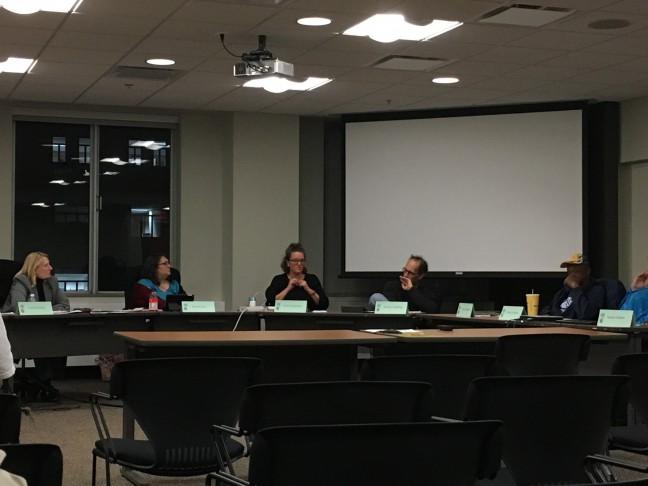The City-County Homeless Issues Committee met Monday to discuss options for providing public bathroom spaces for homeless individuals in the downtown Madison area.
The committee, answerable to the governments of both the City of Madison and Dane County, discussed next steps for public bathroom spaces in Madison after Wisconsin plumbing company Country Plumber ended a port-a-potty contract with the city.
The end of Madison’s contract with Country Plumber meant the removal of several port-a-potties in the immediate downtown area, resulting in fewer public bathroom facilities for homeless individuals.
Linda Ketcham, a member of the committee who works with the Homeless Services Consortium, said the public restrooms offered by The Beacon, a social services center, are only available during operating hours and aren’t sufficient.
“If there is no place for people to go to the bathroom between 7 a.m. and 5 p.m., then we are not treating people with basic human dignity,” Ketcham said.
Operation Welcome Home, a service offering aid to homeless individuals, is looking into acquiring new port-a-potties through a different company or through renegotiation of the city’s previous contract with Country Plumber.
Lynn Green, the Director of the Dane County Department of Public Services, said the county has roughly $5,600 to allocate toward public restrooms and port-a-potty stations.
Committee member Deedra Atkinson, who also works with the Homeless Services Consortium, expressed frustration with the city government’s rejection of an earlier plan to build a permanent public bathroom space in the downtown Madison area.
“The city is trying to compete and bring a company like Amazon here, but we can’t afford a public toilet?” Atkinson said.
Ulysses Williams, a formerly homeless member of the committee, said there is nowhere for homeless individuals to go to the bathroom at night, so public urination is oftentimes their only option.
Brian Austin, a member of the committee and a Madison Police Department officer, said despite the reality of public urinitation, a statistical majority of public urination tickets are issued to intoxicated individuals coming from bars in the downtown area, not homeless individuals.
Williams said businesses, which can serve as bathrooms for homeless individuals during business hours of operation, oftentimes won’t allow the homeless to use their facilities without buying something.
“A lot of them will say ‘hey, not until you buy something,’ which means the homeless will go from business to business until they find something,” Williams said.
The issue with building a permanent public restroom, Green said, is that the funds would come from Dane County, while the site — if it would lie in the committee’s preferred space of the immediate downtown area — would be under the city of Madison jurisdiction.
To resolve this, Madison city councilman and committee member Maurice Cheeks drafted a motion which will be sent to the Dane County Health and Human Needs Committee.
The motion calls for Dane County to work with the City of Madison to use their remaining funds to put up a temporary public bathroom facility within the next 60 days in the immediate downtown area.
This temporary solution, according to the motion, must stay for the next six months until the committee can reach a more permanent solution.


